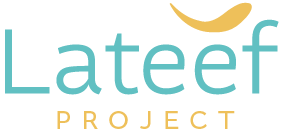Self Care: Movement
Any form of stagnation doesn’t help with mental health issues, as it encourages your mind to dwell and fixate on issues and it gets harder to move on from a negative thought or feeling. Whether it’s doomscrolling or spiralling ‘what-if’ scenarios, sometimes we can’t stop thinking a certain way, or repeating a certain behaviour. Physical stagnation can exacerbate mental stagnation and make it harder to break unhelpful patterns. Stirring up your blood, getting your heart pumping, your lungs expanding, and your muscles springing, even a little bit, can help you ‘shift gear’ out of mental, emotional, and spiritual stasis. Salat helps, of course, gently stretching and releasing your body as you exercise your soul, but salat is gentle and designed to help you focus on one thing - God. Sometimes, if your brain is hyper-fixed on one thing, it needs more of a jolt. This is why having some spontaneous movement in your life is important.
Planned, goal-oriented exercise is great and immensely healthy, but sometimes it can be a source of anxiety rather than a release. Luckily, ‘movement’ doesn’t need to be exercise. You can do really basic things like shaking out every limb, one at a time; doing star-jumps or skipping round the room; going for a brisk walk or running on the spot; or spinning round on the spot (carefully - move anything you could crash into and stop when you get dizzy). Stretch out your arms to the sky and then to your feet. Arch your back and roll your head slowly on your neck from one shoulder to the other. Practice tensing and then releasing each part of your body, starting with your toes - this is something you can do even if your health stops you from doing anything more vigorous.
‘Movement’ can also be circumstantial and not physical. Sometimes getting even a tiny life-task ‘moved on’ can be just as refreshing as twenty jumping-jacks. Make little lists of short, achievable tasks or jobs you can do in the immediate future - like ‘water my plants’, ‘organise my spices’, ‘hand-wash my nice jumper’, ‘send my sister a card’ - and reward yourself with congratulations, compassion, and even small, healthy gifts when you complete each one. These gifts can be anything, from a nice cup of coffee to an indulgent extra five minutes in the shower. Keeping these lists short and not putting anything life-altering on them (don’t put ‘find a job’ or even ‘clean the house’ - these are too big) makes it possible to feel like you have moved something in your day. You could put ‘clean the fireplace’ or ‘organise my computer’ because those are only a couple of hours to complete, and when they’re done they’re done. Like twenty star-jump.
If none of this feels possible there are even smaller things you can do. Listening to high-tempo, percussive sound (in a major key, if melodic) can bring your heart rate up even at rest, and get your blood moving a little faster. Listening to a funny podcast or speaking to a friend who can make you laugh can also help you giggle your way into a slightly less stagnant state. You can also do both these things (though maybe not at the same time) while doing any of the other ‘get moving’ activities above to double the impact.
All in all, any thing that helps remind you you’re alive and break a static, stagnant, rut will help strengthen your mental immune system, making it easier for your to manage any struggles or issues that come up.
As always with these self-care suggestions, if you are struggling with deeper mental health issues, trauma, or in abusive or unstable circumstances this is not a complete solution, and you should not worry that any struggles with movement are the cause or the root of your problems, and moving more cannot be the whole solution. An Islamic counsellor or other mental health service can help you figure out a complete package of tools for processing your day to day feelings, resolving issues in your life, and help you make choices for a smoother, healthier, journey through life.

